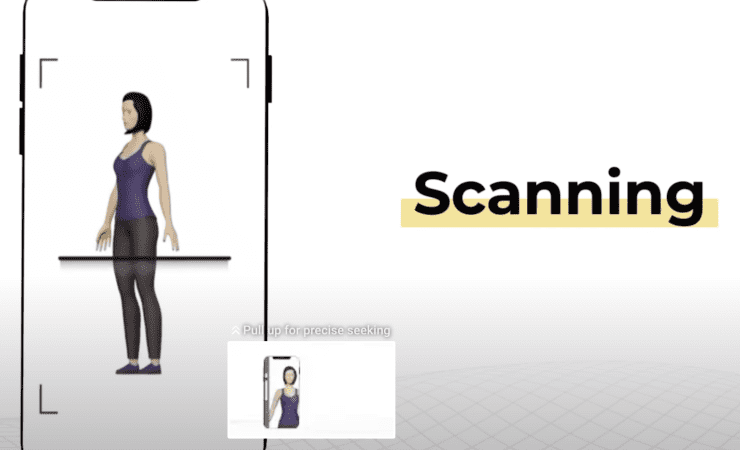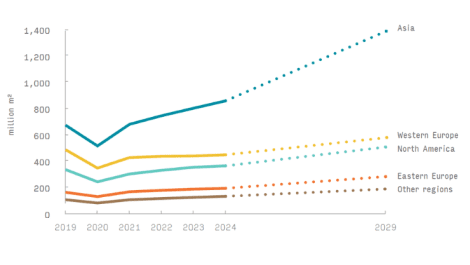An Oxford University technology spinout has invented a new AI tool that scans users’ bodies to provide accurate clothing measurements, bringing the potential to streamline the online shopping experience and save UK retailers significantly on returns die to wrong sizes garments being ordered.
The venture and its eponymous product Aistetic deliver 3D body measurement software for online clothing retailers, fitness and digital healthcare providers. Founded in 2019 by Duncan McKay, INSEAD MBA and Phil Torr, professor of Computer Vision and Deep Learning at the University of Oxford, the firm was awarded two Innovate UK Grants, and one Future Fashion Factory Grant in partnership with the University of Leeds, with funding totalling approximately £1.2 million.
Aistetic is described as a low-code solution that integrates into retailers’ websites via JavaScript and which works with WordPress and Shopify stores. Using the software, users can select a garment, then use AI software to scan their body and receive their measurements and clothes sizing specific to the retailer they’re shopping with within three minutes. Mr McKay explained that this new tool can reduce rates of return by up to 30%, creating significant savings for retailers:
‘Using our tool, consumers can record themselves using their phone, tablet or computer to receive their measurements with 98% accuracy. They just need to stand back in front of the camera and turn for 10 seconds. We want to empower people with their body data to make more informed decisions that are right for them and using this tool can reduce rates of return by up to 30%. Our next step is to develop a no code solution for Shopify customers – this will make our grey labelled solution entirely no code and available on Shopify’s app marketplace platform.’
High rates of returns are not only a profit drain for retailers with online businesses but also represent a significant environmental impact within the polluting fashion sector, which the UN estimates contributes some 10% of global carbon emissions.
‘The carbon footprint of a return can be as high as 4.2kg if the garment is taken back into the store. This is something that we often don’t think about. This technology is easily accessible – it’s a low-code solution that can be pasted into any site – and will help to promote a more responsible approach to clothing,’ added Mr McKay.
Aistetic is currently available for online brands and retailers and can be set up in minutes, according to its developers. It would also have potential applications in bespoke tailoring / garment making via e-commerce, we think.


